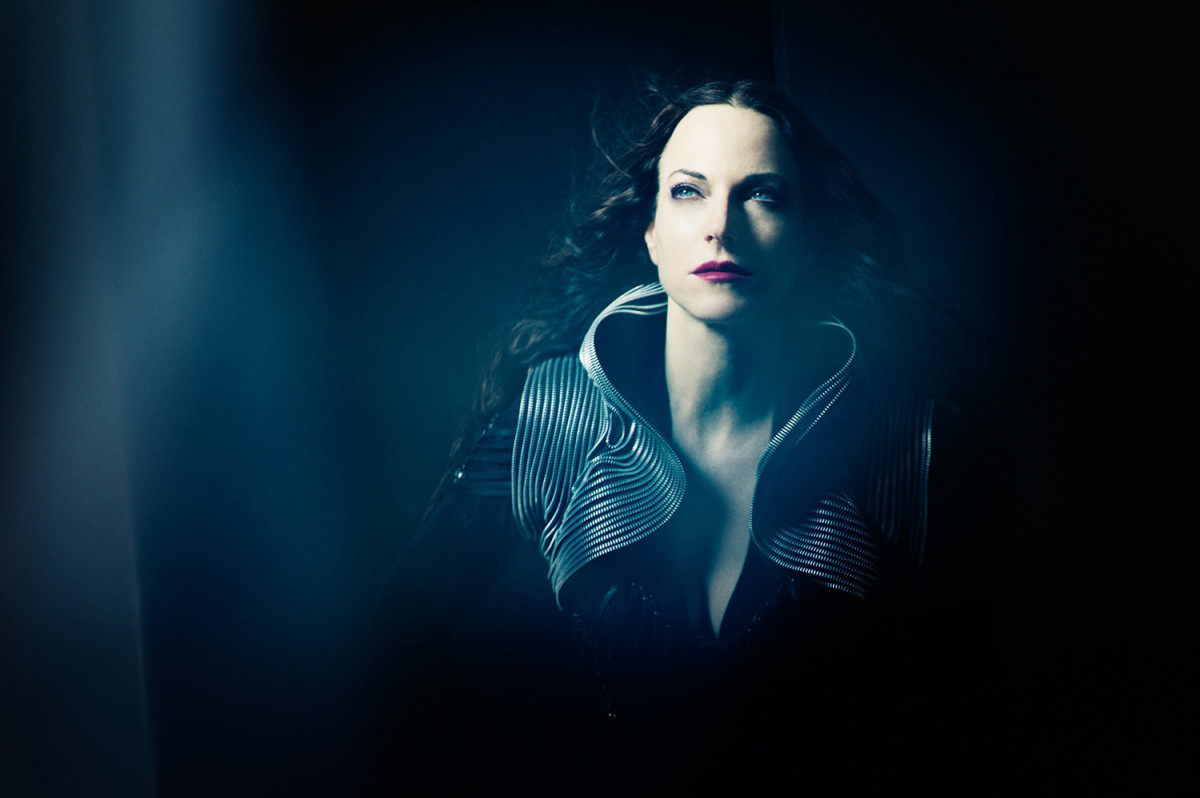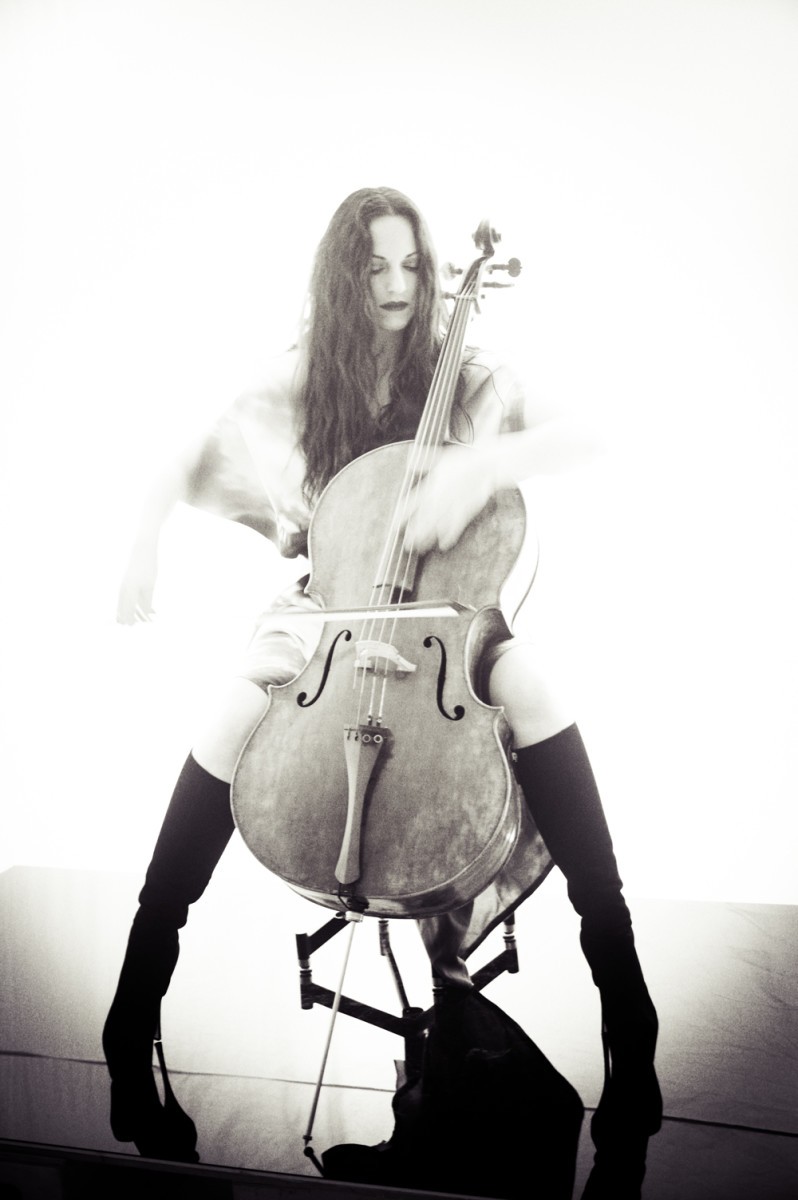Maya Beiser’s recent album of classic rock covers, cheekily titled “Uncovered,” may come as a surprise to those who know her as a daring cellist primarily focused on new classical works. But the Israeli-born soloist (she now resides in New York City) says that the project was hardly a departure at all. Every song, from Led Zeppelin’s “Black Dog” to Janis Joplin’s own cover of “Summertime,” has special meaning. “This is literally music that has changed me in one way or another,” says Beiser.
Beiser was born on a small Israeli kibbutz to an Argentinian father and a French mother, and started winning classical music competitions at an early age. “But the music that I was playing, the classical music, in some way was completely detached from the rest of my world,” she says. “Because at home my father was listening to tangos and Argentinean music. I was surround by all this music—we had all these Arab villages around us, so I heard all this different middle eastern music. And then I started to hear rock ‘n’ roll.”
Beiser, who will perform at the MIT Kresge Auditorium on Sept. 25 as part of the MIT Sounding performance series, remembers vividly the moment her high school boyfriend introduced her to Janis Joplin. “It just blew my mind. … [Joplin] just became this huge influence on me. Because that, right there, when I heard her sing, I thought ‘Wow, I really want to play the cello the way she sings.’”
On “Summertime,” Beiser teases out the vulnerability in Joplin’s own rendition of the jazz standard, her cello by turns tremulous and crackling. She is anguished on Nirvana’s “Lithium,” transcendent on Pink Floyd’s “Wish You Were Here,” apocalyptic on AC/DC’s “Back in Black.”
“What’s so interesting about this is that in classical music, so much of it is about the purity of the sound and perfection of the phrase,” says Beiser. “And you’ve worked hours and hours and hours at perfecting every little nuance. And here, it’s almost like the opposite of that. It’s about the vibe. It’s about being really, sometimes, down-and-dirty. It’s about imperfection. It’s about this very human quality. And this is the thing I love about Janis Joplin, and about Howlin’ Wolf, and about Jimi Hendrix, for that matter. That it’s anything but perfection. It’s perfect in its own imperfect way.”
Beiser’s quest to harness the cello’s imperfections is helped immensely by Evan Ziporyn’s arrangements, which in turn rely heavily on Beiser’s favored technique of looping and distorting her instrument to build vast, kaleidoscoping soundscapes. In “Wish You Were Here,” Beiser’s cello rushes and retreats like ripples on the sea. In “Black Dog,” she sounds about as close to an electric guitar as a cellist can get, distorted and fearsome and more than holding her own against the larger-than-life drumming of Wilco’s Glenn Kotche. In Howlin’ Wolf’s “Moanin’ at Midnight,” a minimalist arrangement built around swinging pizzicato and delicate percussion gathers its power from a meditative groove.
The upcoming concert will offer a reunion of sorts: Beiser is a visiting artist at MIT, while Ziporyn curates the MIT Sounding series in his role as director of MIT’s Center for Art, Science & Technology. Back in the ‘90s, Beiser and Ziporyn got their start together in the acclaimed new music ensemble Bang on a Can All-Stars. In fact, Ziporyn’s arrangement of “Lithium” traces its roots back to Bang on a Can’s London premiere. Beiser remembers the song becoming a regular feature of the group’s encores, though they never recorded it. Ziporyn’s arrangement of “Lithium” for multi-track cello on “Uncovered” is, in a way, the song’s own encore.
In live performance, Beiser uses loops and backing tracks to recreate the arrangements on her albums. (At MIT she will be joined by drummer Matt Kilmer, the composer for the critically-adored TV show “Louie,” and bassist Jherek Bischoff, of Amanda Palmer and the Grand Theft Orchestra. Bischoff will lead a composers forum on Sept. 24.) The effect is strangely organic, as though a virtual cello orchestra is emanating directly from the lone instrument’s fragile body. Beiser’s concerts inevitably evoke wonder at all that the cello can do. But on “Uncovered,” the songs achieve new depths as well.
“If you think about it, as a classical performer, all we do is covers,” says Beiser. “We take this music that was written already, a long time ago, that was played by a lot of different people, and we recreate it. … I don’t see it as a separate thing. Rather the idea is, this music is just as important as classical music, to me. So it’s about elevating it to this place where you could say, ‘This music is really worth treating in a serious way.’”



